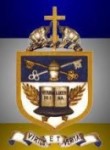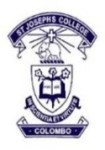Courtesy: Hafiz Marikar – The Nation 12 August 2012
 Jeyer Rodriguez, was a brilliant prop forward during his playing days at St. Peter’s College, Havelock SC, Sri Lanka Air Force SC and Sri Lanka, now a citizen of Canada he is over here in Sri Lanka on holiday, he was very happy to see his former club Havelock’s SC in an amazing turn around both the Clubs infrastructure and the Rugby team currently leading the Dialog Rugby League table for 2012. He recollects his days with Havelock’s as a rugby player, captain, coach, selector, committee member and President in 1989-1990. He was with broad smiles after many years when he saw the development of the club which won the rugby league last in 1981.
Jeyer Rodriguez, was a brilliant prop forward during his playing days at St. Peter’s College, Havelock SC, Sri Lanka Air Force SC and Sri Lanka, now a citizen of Canada he is over here in Sri Lanka on holiday, he was very happy to see his former club Havelock’s SC in an amazing turn around both the Clubs infrastructure and the Rugby team currently leading the Dialog Rugby League table for 2012. He recollects his days with Havelock’s as a rugby player, captain, coach, selector, committee member and President in 1989-1990. He was with broad smiles after many years when he saw the development of the club which won the rugby league last in 1981.
Jeyer was very glad and pleased to see a huge change at Nittawela. He was told that all this has come about with the influence of Malik Samarawickrema since 1992 and he was still going strong despite several obstacles in the field of rugby and also not forgetting Dr.Sarath Kapuwatte, the man who has given his fullest backing to Malik.
Roriguez said that, today’s rugby is one of the most popular sports in the country and all clubs are playing good rugby with a change in the format and in particular with the introduction of expatriate players to boost the game. Rodriguez came into rugby in 1957 when he was introduced to the game by former Peterite cricketer and ruggerite Desmond Dharmaraja, According to Jeyer he was the one who taught him the basic of he game alond with the Ratnam brothers Jeff and Dan, Vernon Caldera, Selvam Mather, Maurice Balasingham, Ronnie Abyeyagunawardene, Darrel and Russell Schokman and his brother Raj. This helped all of them to play rugger for St. Peters. Later most of these players donned the Sri Lanka jersey.
Jeyer said that, he was picked to play for St. Peter’s in 1960 as a front row forward and also was the team’s place kicker when the famous Archibald Perera was rugby coach. In 1962, Jeyer was picked to lead the Peterites and in the same year he represented the Colombo Schools in the Gratian Cup game against the Outstation Schools, today this cup is not to be seen. In 1962 he was made a student member of the Havelocks SC and in 1969 he captained Havelock who became league champions but, in the Clifford Cup competition, they were knocked out in the quarters by Kandy SC, led by Denzil Kobbekkduwa. In 1972 Jeyer joined the Sri Lanka Air Force as a volunteer officer and was chosen to play for the Air Force in 1972 and 1973. Again in 1974 he returned to his former club Havelocks and went on to play till 1978, the year they won the triple under Anton Benedict. That was the best era of Havies rugby in1976, 1977 and 1978; they won all the tournaments of the SLRFU.
It was in 1964 that he first represented the Ceylon Barbarians in the annual all India tournament, played in Sri Lanka, under the leadership of Chris Bean. Again he was selected to play for the country in 1965 in the All India tournament, but the tournament was called off, due to the India–Pakistan war. Again in 1966 and 1967, Jeyer was selected to play for the country; in 1966 the team won the All India championship by beating Calcutta by 56 points to 3. Jeyer was a member of the Sri Lanka team led by Indrajith Coomarasamy in the first-ever Asiad played in Sri Lanka in 1974, the team was placed second to Japan. Jeyer later took up coaching and started by helping Archibald Perera. He followed a course in coaching organised by SLRFU and conducted by Bryan French. He also followed the coaching course conducted by Chris Padfield in Sri Lanka. Jeyer, playing for the 97-year-old Park Club, maybe the only ruggerite to have played in nine Cup finals, out of which his club won seven, drew one and lost one.
He coached his school St. Peter the year the great coach Archibald Perera passed away. Later he coached the Sri Lanka Army Signals Unit for nine years. He also coached the Sri Lanka Army team. Jeyer Rodriguez will be remembered as a coach who always taught the players to enjoy themselves and play good, clean and hard rugby. He also instilled the concept that: “If they can say after a match, ‘I had a nice time on the field’ that’s enough.”
Where is Jeyer today? He lives in Toronto, Canada with his family





